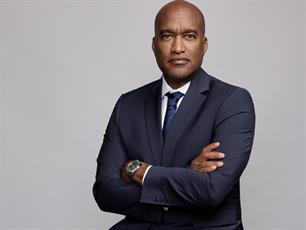Holmes Report 06 Jun 2011 // 11:00PM GMT
On April 15, incited by an online disinformation campaign that implied that drinking a certain brand of milk powder caused three-year-old girls to grow breasts and reach premature puberty, four powerful Chinese government ministries announced a two month campaign against "illegal PR". The government statement noted that it sought to end the recruitment of agencies and "Internet mercenaries" to engage in "improper competition with rivals" fabricating and distorting facts, and reaping profits by sensationalizing issues on the internet.
Three days later, the International Communications Office of the Chinese Communist Party Central Committee distributed a list of websites and phone numbers where the general public could report illegal online PR practices. Online PR now joins corruption and domestic violence as those social phenomena requiring a reporting hotline.
On May 16th, one hundred and forty of China's largest and most popular websites, including search giant Baidu, portals Sina, Sohu, and Netease, and online video site Youku, signed a convention vowing to quash any form of illegal publicity on their sites. Leading this charge was not the public relations industry, but the Internet Society of China.
Despite the pall this incident casts on the entire public relations industry, the response from China's PR agencies has been disappointing. Last November in Shanghai, not long after the original scandal broke, twelve of the larger global PR firms signed a pledge to eschew some of the more egregious practices in China. But the pledge lacked teeth, made no promise to address the root of the problem, and frankly came off as little more than a PR exercise for the signing agencies. That the Chinese Communist Party and a huge portion of the online media industry felt compelled to take action just a few months later should tell us as much.
There can be no greater indictment of the public relations craft than when we cede the initiative on our professional ethics to the media and government. Oura inaction as a profession in the face of widespread unethical practices (one agency executive was quoted as saying that up to 20% of his clients were affected by competitor-generated online PR smear campaigns) makes us all look like guilty curs slinking into the shadows.
And we are not. Ethical public relations firms and practitioners are in the majority in China, many of them fighting the temptation (and sometimes, the demand) to engage in nefarious practices because they are told "this is the way things are done here."
Nobody will know that, though, until and unless we start to clean our own house. If honest practitioners are to distance ourselves from the amoral cretins that taint our craft, each PR firm must not only set standards of communications ethics, we must stick with them even when doing so costs us business. For Chinese agencies, this begins at home, but for global agencies, we must tell our leadership that we would rather miss our numbers than accept revenues unethically earned.
Do we have the courage to put our money where our ethics are? I hope so. The alternative is to prove to the world their worst suspicions about our profession.
David Wolf is CEO of Wolf Group Asia.


































.jpg)





.tmb-135x100.jpg)











